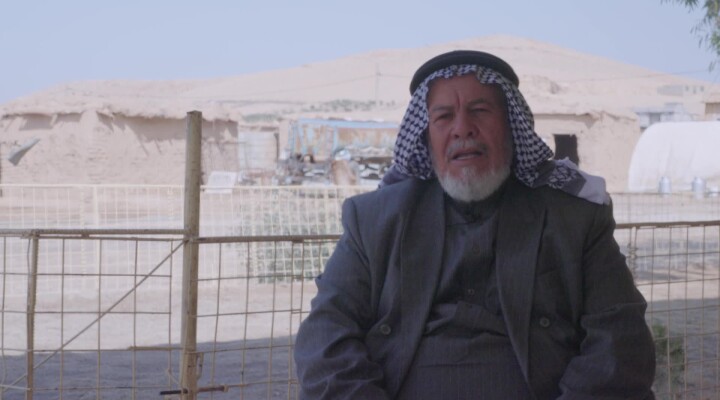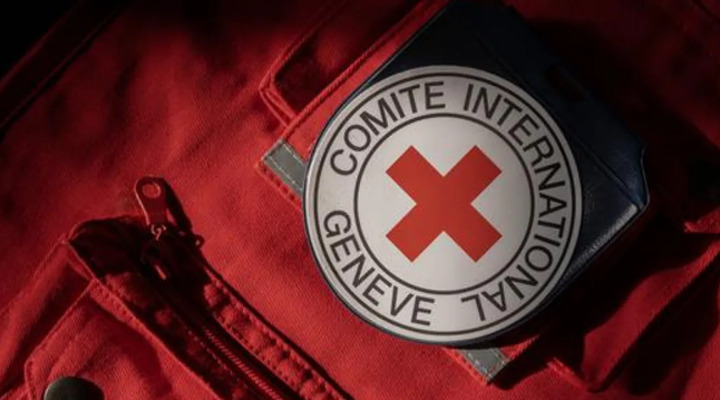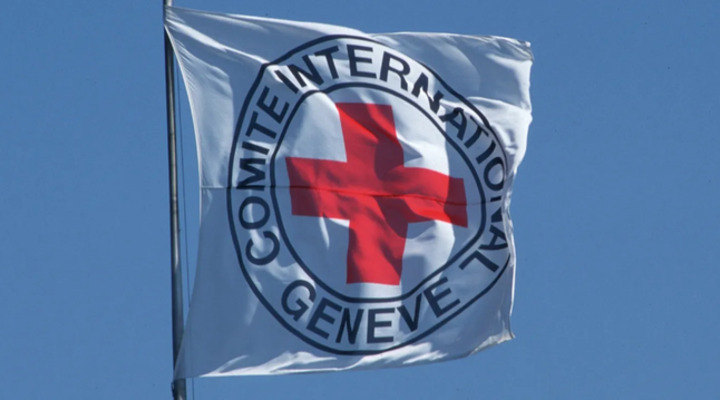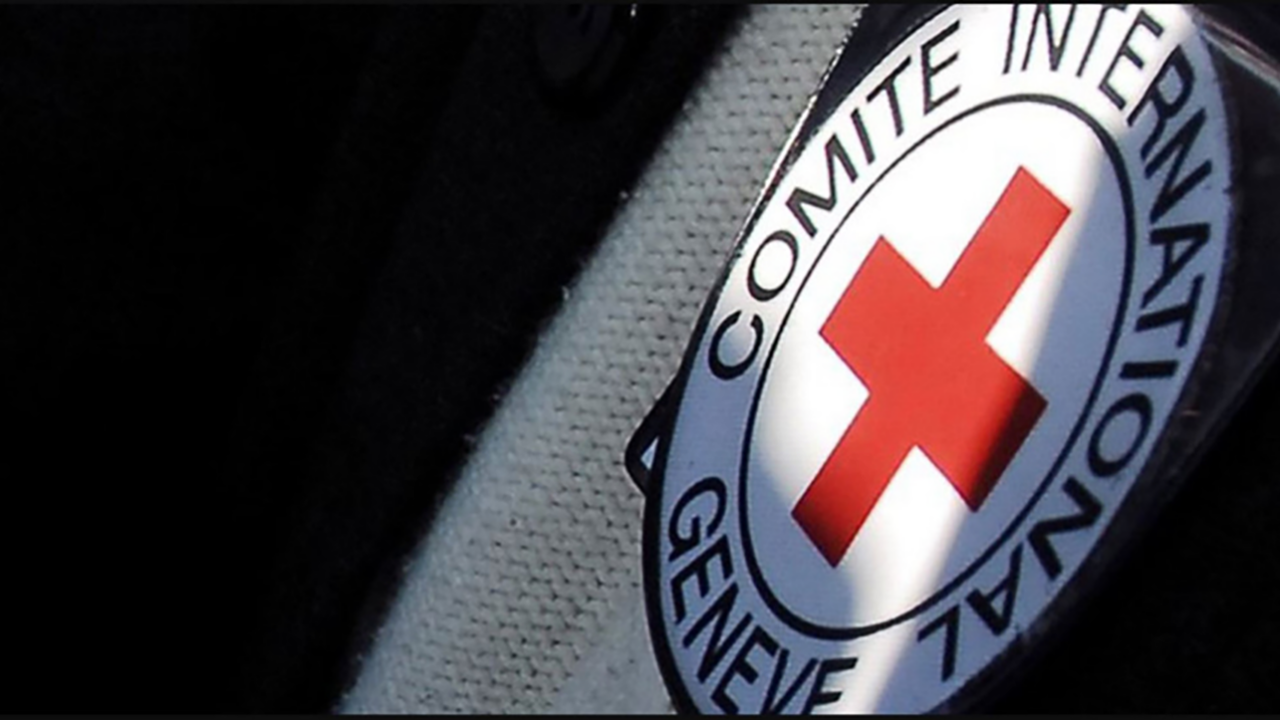Iraq: Hundreds of thousands in desperate humanitarian need
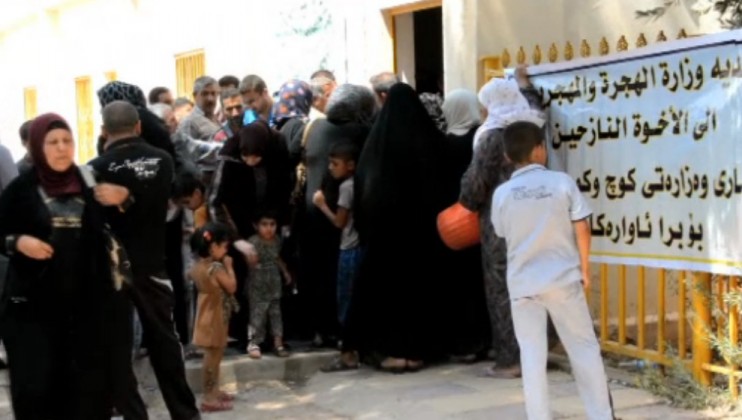
This is a modal window.
As the fighting between government forces and various armed groups continues, hundreds of thousands of people are on the move seeking safety.
Each day hundreds arrive in Khanaqin, Diyala province and more to other areas in Iraqi Kurdistan Region. Many come to the A’liawah Center for displaced people. They queue up in the searing heat with temperatures reaching up to 47 degrees and register their names to receive food and assistance from the International Committee of the Red Cross (ICRC) and other local NGOs and donors.
Abu Majid fled the fighting in Al-Miqdadiyah, north east of Baghdad and found shelter 60km away in the A’liawah Center. “We had to leave our village as there was heavy shelling coming from all different directions,” explains Abu Majid.
Abu Majid and his family are sleeping and eating at the center with other displaced Iraqis: “We get three meals a day. We get bottled water and even ice. There's enough food and drink but we don't want to stay away from our homes and village. If we could, we would go back right now to be with our loved ones." But Abu Majid knows the fighting hasn't stopped and it's too dangerous.
Patrick Youssef, ICRC's Head of Delegation says: "While the violence is spreading from one governate to another, from one city to another, people have to deal with normal and basic things and needs. They need water and they need food and they need the possibility to access health care."
Muhammad Salah is volunteering at A’liawah Center working in the food store and kitchen and sees new faces each day: "Yesterday, we cooked for 800 people. Today, we cooked for 1,000 persons and the numbers keep increasing."
Nearby, a football playground has become a place people go to receive aid - blankets, buckets, jerry cans and other basic items from ICRC. This assistance covers the needs of 200 families (1,200 people).
ICRC's Patrick Youssef explains: "We are trying as fast as possible to respond to those needs by providing food: sugar, salt, rice, oil etcetera but also we try to provide drinking water to those displaced and also ensure that hospital and clinics have the right medical equipment and material to cope with the growing needs."
The ICRC reminds all parties to the conflict of their obligation under international humanitarian law to spare civilians and civilian objects and to facilitate the delivery of humanitarian aid to the people who need it. Everyone who is wounded or sick must be granted prompt and safe access to health care. Medical facilities must be protected from attacks, and every effort must be made to ensure that medical personnel can carry out their activities unhindered.
Facts & Figures:
- At least 800,000 people have had to flee their homes since intense fighting started last December.
- ICRC has distributed food and other essentials to more than 153,000 displaced persons across Iraq. Other distributions are on-going.
- ICRC trucks 45,000 liters of water to two IDP centers every day for drinking, cooking and bathing purposes.
Video One and Two = Broll & Interview in Arabic and English - SD and HD
Video Three = Additional Interview with ICRC's Head of Delegation, Iraq in Arabic - HD
Shotlist
Location: Various
Length: 4:06
Format: H264 Mov HD & SD
Production: Saleh Dabbakeh & Nicola Fell
Camera: Saleh Dabbakeh
Sound: English & Arabic
ICRC ref: AV196N
Copyright: ICRC access all
Khanaqin, Diyala Governorate, Iraq, 28 June 2014
0:00 Ambulance arriving at A’liawah IDPs Center
0:14 People at A’liawah IDPs Center queuing to register their names to receive assistance and shelter.
SOUNDBITE Abu-Majid, displaced from Sinsil village, Al-Miqdadiyah (in Arabic)
0:26 “We had to leave our village as there was heavy shelling coming from all different directions we sought shelter in Khaniqin.”
0:40 “We get three meals a day. We get bottled water and even ice. There's enough food and drink. "
1:03 "We do not want to stay away from our homes and village. We would like to return right now if possible. We want to go back to our village and our loved ones with whom we continue to have contact.”
1:17 “There is still shelling. We are waiting for the situation to calm down before going back.”
ICRC HQ, Geneva, Switzerland 3 July 2014
1:30 SOUNDBITE Patrick Youssef, Head of Delegation, ICRC Iraq (in English)
"While the violence is spreading from one governate to another, from one city to another, people have to deal with normal and basic things.
1:38 "They need water and they need food and they need the possibility to access health care."
Khanaqin, Diyala Governorate, Iraq, 28 June 2014
1:47 People at A’liawah IDPs Center queuing to register their names to receive assistance and shelter.
SOUNDBITE Muhammad Salah, volunteer at A’liawah Center (in Arabic)
1:54 "Yesterday, we cooked for 800 people. Today, we cooked for 1,000 persons and the number keeps increasing."
2:06 Various of aid distribution at a football playground near A’liawah IDP Center for distribution to newly arriving IDPs from Al-Miqdadiyah, Diyala Governorate. This distribution covered 200 families (1,200 persons)
3:17 SOUNDBITE Patrick Youssef, Head of Delegation, ICRC Iraq (in English)
"We are trying as fast as possible to respond to those needs by providing food: sugar, salt, rice, oil etcetera but also we try to provide drinking water to those displaced and also ensure that hospital and clinics have the right medical equipment and material to cope with the growing needs."
3:42 : Various of ambulance with two doctors, a gynecologist and a pediatrician, a pharmacist and lab technician providing health care to IDP patients during two-hour visits twice a day."
4:06 END
